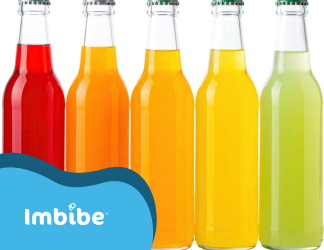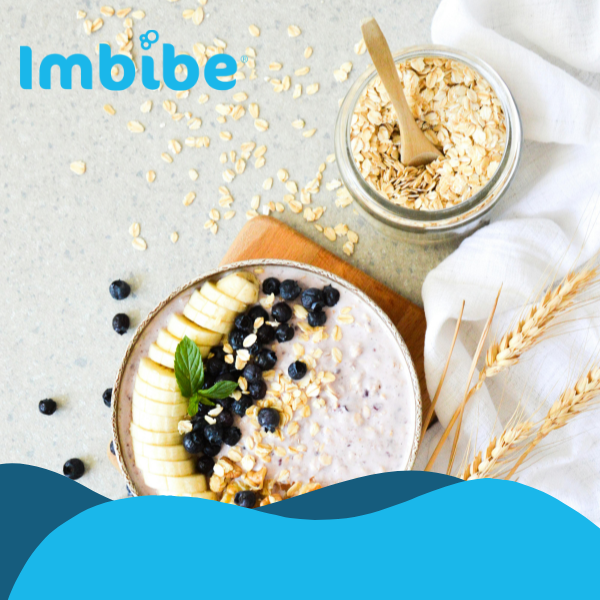Updated March 2025:
Since our last update, significant developments have occurred in the food and beverage industry regarding genetically modified organisms (GMOs) and non-GMO claims. The National Bioengineered Food Disclosure Standard (NBFDS), established by the USDA, has been updated and became effective on December 29, 2023, with mandatory compliance starting June 23, 2025. This standard requires food manufacturers to disclose bioengineered ingredients on product labels, impacting how non-GMO claims are perceived and regulated.
Some Key Developments:
NBFDS Compliance: The NBFDS mandates that food manufacturers, importers, and certain retailers disclose bioengineered foods using text, symbols, electronic links, or text messages. This rule applies to most food products but excludes restaurants, small manufacturers, and certified organic foods.¹
Non-GMO Market Growth: Despite regulatory changes, the non-GMO market continues to grow, driven by consumer demand for natural and sustainable products. The global non-GMO food market is projected to reach USD 129,499 million by 2035, reflecting a CAGR of 8.7% from 2025 to 2035.² Certified Non-GMO products saw a 12% year-over-year growth in 2023.³
Consumer Preferences: Consumers increasingly seek transparency and sustainability in food products. Over 50% of supplement users prefer non-GMO labels, particularly among younger generations. The Non-GMO Project Verified label is more effective than self-made claims, as it resonates with consumers willing to pay a premium for verified products.
To successfully meet the demands of changing trends and regulatory landscapes, food and beverage manufacturers can rely on Imbibe’s expert partnership for innovative flavor and formulation development, ensuring a strong competitive position.
##
There’s a big change coming to the food and beverage industry regarding claims about genetically modified organisms (GMOs). Starting in January 2022, brands will not be able to include a non-GMO claim and instead will be required to follow disclosure standards for bioengineered foods (aka GMOs). The rule was established by the USDA and is called the National Bioengineered Food Disclosure Standard (NBFDS).
Over the last decade, non-GMO claims have become increasingly popular as a way to inform consumers that none of the ingredients in a product have had their characteristics changed through modification of their DNA. Products with non-GMO claims are positioned as superior quality, clean label and better for you. In 2018, Nielsen found that 87% of consumers believed that non-GMO claim meant a product was healthier and the claim still resonates with consumers. The International Food Information Council’s 2020 Food and Health Survey found that more than 30% of consumers are influenced by a non-GMO claim when purchasing a product.
While these claims have become commonplace, there has never been an FDA definition for non-GMO and any certifications are provided by third party vendors who have a standardized verification process. In order to mitigate the issue of not having federal guidelines in place, congress passed the National Bioengineered Food Disclosure Law in 2016 which required the USDA to establish a national mandatory standard for disclosing foods that are bioengineered. The standards have been released and can be implemented as early as January 2021, though they are not required until the following year.
Here’s what you need to know about the new standard:
Who is Affected? The new rule applies to all food manufacturers and importers as well as retailers who package and label food for retail sale or sell bulk food items. It does NOT apply to restaurants, restaurant-like retail food establishments (e.g.: a school cafeteria), or small manufacturers with fewer than 20 employees and/or with annual revenue of less than $2.5 million.
What are bioengineered foods? Bioengineered foods contain genetic material that has been modified through in-vitro recombinant DNA techniques, and for which the modification could not otherwise be obtained through conventional breeding found in nature. Examples include corn, alfalfa, potato and soybean. More examples can be found on the USDA website.
When do I need to make a bioengineered claim? A bioengineered food disclosure is required if the most predominant ingredient of the finished product (i.e. the first ingredient on the product label) is a bioengineered ingredient. However, if the most predominant ingredient of the food is broth, stock, water, or a similar solution then a bioengineered food disclosure is required if the second most predominant ingredient of the finished product is bioengineered.
Are there any exceptions to the rule? Yes, there are exceptions to the rule. These include:
- If the bioengineered ingredient is less than 5% of the total product then brands do not need to disclose that the product has bioengineered ingredients.
- Refined foods that do not contain detectable modified genetic material are exempt from the bioengineered standard. This includes refined sugars, high fructose corn syrup and vegetable oils because these ingredients undergo processing conditions that degrade or eliminate the DNA of the bioengineered ingredient that was initially present in the raw agricultural commodity. Ethyl alcohol, which is derived from corn and often used as a solvent for flavor creation, is also exempt from requiring a bioengineered disclosure for this reason.
- Certified organic foods, incidental additives, pet food, animal feed or any food derived from animals (even if animal consumed feed produced from, containing, or consisting of a bioengineered substance) are not considered bioengineered foods.
What do I have to put on my label? There are four requirements for the labels of products that require a bioengineered claim. If a product is deemed bioengineered, it must include all of the following:
- One of the bioengineered symbols listed below

- A text disclosure that clearly communicates the product has bioengineered ingredients. Acceptable statements include, “Bioengineered food,” or “Contains bioengineered ingredients.” A statement such as, “May be bioengineered,” would not be acceptable.
- An electronic or digital signature (aka a QR code) that must be accompanied by the statements, “Scan here for more information,” and “Call [phone number] for more information.”
- A free automated text response system along with the statement, “Text [command word] to [phone number] for bioengineered food information.” A response must be sent to the consumer immediately. Additionally, brands cannot send promotional or marketing information in the text message or use the consumer’s personal information for any reason.
Where do I have to display this information? The bioengineered food disclosure requirements must be placed on the information panel, which is adjacent to the food manufacturer and distributor name and location statement. Brands can also elect to display it on the front of their packaging. If there is insufficient space to place the disclosure on the information panel, it can be displayed on an alternate panel if it allows consumers to clearly see it under ordinary shopping conditions.
How does this differ than the standards for non-GMO claims? The biggest differences between bioengineered and non-GMO claims are that third party verification groups looked at all ingredients in a product as well as the source of the ingredient. That is, for non-GMO certification it did not matter if an ingredient did not have DNA from the source (e.g. high fructose corn syrup would be considered a GMO and therefore a product that contains it could not be certified non-GMO). Additionally, disclosing a bioengineered status will be mandatory whereas non-GMO verification was optional.
Will I still be able to make a non-GMO claim? Beginning in January 2022, brands will not be able to make non-GMO claims and can be fined for doing so.
How is the rule being enforced? The USDA does not have authority to issue a recall or impose civil penalties for violation of the NBFDS. However, there is a mechanism in the NBFDS for filing a written complaint with the Agricultural Marketing Service (AMS) for suspected violations. Complaints will be investigated and there will be an opportunity for a hearing. Once these are completed the AMS will make a public summary of any finalized findings. Therefore, if a brand is investigated and the AMS finds that they did not comply with the NBFDS guidelines they are liable.
How is Imbibe approaching the new regulations? Imbibe’s regulatory team will continue to provide customers with a non-GMO statement in 2021 but will also provide customers with the bioengineered status. This document tells the customer if an ingredient sold by Imbibe is bioengineered or if it includes any genetically modified substances (e.g. if ethyl alcohol was used as a solvent to create a flavor sold by Imbibe, we will disclose that ethyl alcohol was used but it does not require a claim because it is highly processed). The regulatory team will also look at the product as a whole to determine its bioengineered status.
While these are the rules currently outlined by the USDA, it’s important to be aware that they are subject to change, so keep an eye out for any updates! If you have any additional questions, please reach out to your business developer or email marketing@imbibeinc.com.




